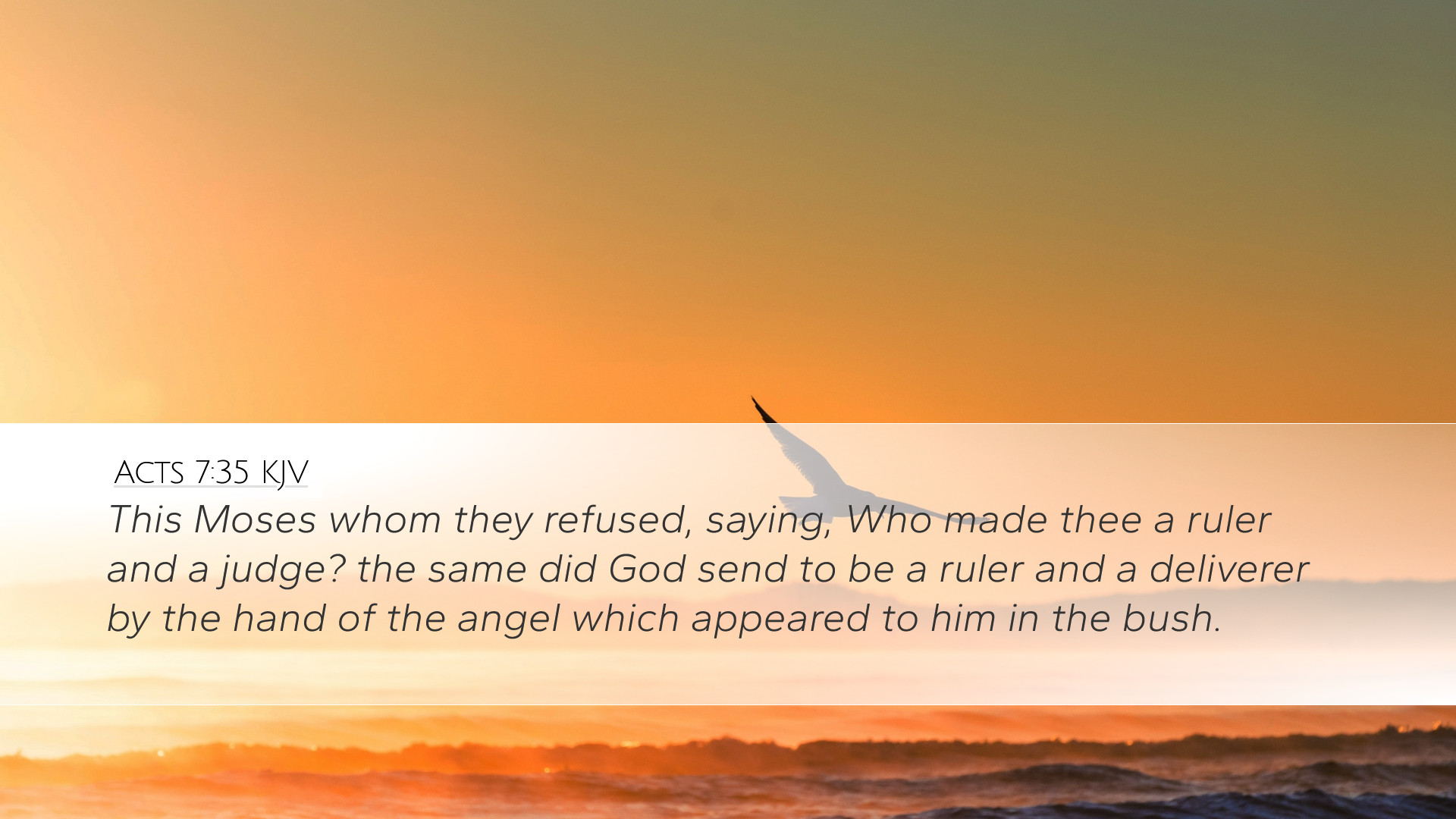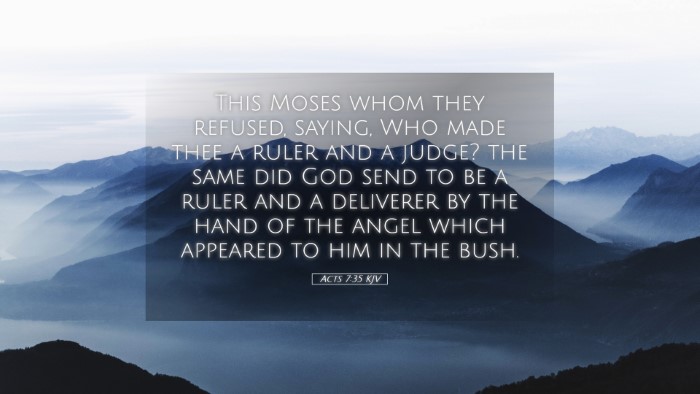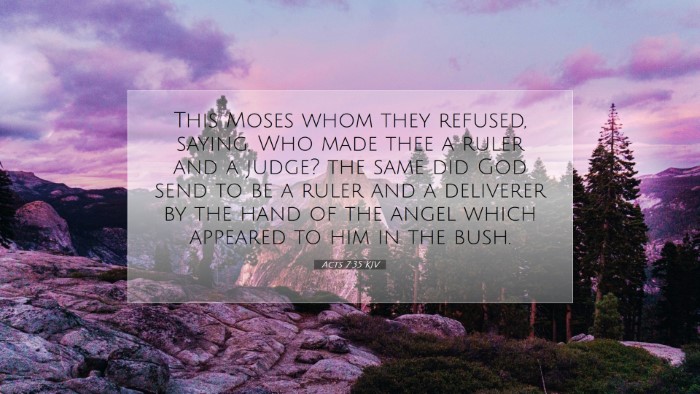Commentary on Acts 7:35
Acts 7:35 states, “This Moses whom they rejected, saying, 'Who made you a ruler and a judge?' is the one God sent to be a ruler and deliverer by the hand of the angel who appeared to him in the bush.” This verse comes at a crucial juncture in Stephen’s speech to the Sanhedrin, where he recounts Israel's history and the rejection of God's chosen leaders.
Contextual Overview
This verse serves as a reflection on Moses' calling and the Israelites' response to him. Moses is portrayed not only as the deliverer but as one who was initially met with skepticism and rejection by his own people. This theme of rejection is pivotal, as it mirrors the later rejection of Jesus Christ by the Jews.
Insights from Public Domain Commentaries
Matthew Henry’s Commentary
Matthew Henry emphasizes the divine providence in the selection of Moses as a leader. He notes that the rejection of Moses by the Israelites is tragic, considering that he was chosen by God to deliver them from bondage. Henry highlights that the initial skepticism faced by Moses exemplifies a common human pattern of rejecting God’s chosen vessels.
- Divine Judgment and Mercy: Henry points out the duality of judgment and mercy within biblical history. Though the Israelites rejected Moses, God still appointed him as their deliverer, illustrating God's unwavering mercy amidst human rebellion.
- The Role of Divine Intervention: He stresses that it was the ‘angel’ that appeared to Moses, signifying God’s direct involvement in the process of liberation, and demonstrating that God often works through unconventional means to fulfill His purposes.
Albert Barnes’ Commentary
Albert Barnes provides a detailed analysis of the phrase “Who made you a ruler and a judge?” He expounds that this question reflects a lack of faith and an outright challenge to divine authority. Barnes asserts that the question reveals the ingrained disbelief of Israel, which resists accepting God's instruments of salvation.
- Human Authority Versus Divine Calling: Barnes deliberates on the concept of authority, pointing out that God’s choice of Moses was unassailable by human standards. He contrasts divine appointment with human skepticism, encouraging readers to acknowledge God’s sovereignty in the selection of leaders.
- Historical Significance: Barnes highlights how Stephen, in recounting Moses’ story, draws a parallel to Jesus, positioning Jesus as the ultimate and final deliverer rejected by the same people. This comparison serves as a poignant reminder of the cyclical nature of rejection within Israel's history.
Adam Clarke’s Commentary
Adam Clarke offers an in-depth exegesis of the text, noting that the reference to Moses’ rejection resonates with the broader theme of how God’s chosen ones often face opposition from their own people. Clarke also discusses the term “the angel,” which implies a representation of God’s authority and presence.
- The Significance of Rejection: Clarke points out that Moses' initial rejection serves as a precursor to the ultimate rejection of Jesus. This theme is prevalent throughout biblical narratives, presenting a paradox where God’s plans are often met with resistance.
- Moses as a Type of Christ: He elucidates the typological significance of Moses, interpreting Moses’ leadership and mediatory role as a foreshadowing of Christ. Clarke argues that understanding Moses in this light enriches biblical interpretation and highlights God's redemptive plan for humanity.
Theological Implications
This verse invites significant theological reflection regarding God's sovereignty, the nature of human response to divine calls, and the implications of leadership. The historical anecdote of Moses serves as a microcosm reflecting greater truths about God's interactions with humanity.
Rejection of God’s Chosen Vessels
Both the accounts of Moses and Jesus illustrate a recurring motif of rejection in biblical history that calls for introspection among believers. How often do we resist God’s direction, and what implications does this have for our spiritual lives?
Divine Sovereignty in Human Affairs
Acts 7:35 reinforces the belief that God's purposes prevail regardless of human opposition. The mechanism of divine selection—using an initially rejected individual—is a powerful testament to God's grace and His ability to use imperfect vessels for His glory.
Conclusion
Acts 7:35 serves as a poignant reminder of the complexities of human response to divine calling. The insights from Matthew Henry, Albert Barnes, and Adam Clarke enhance our understanding of Moses’ critical role in salvation history and provide profound reflections for pastors, students, theologians, and scholars. They collectively urge us to recognize our calling, acknowledge God’s sovereignty, and be vigilant against the tendency to reject those chosen by God.


